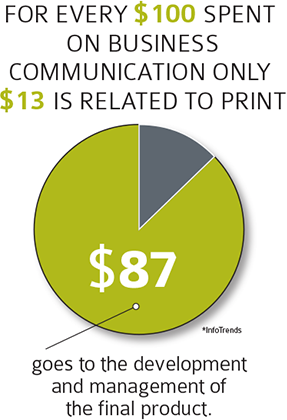For many businesses, direct mail letters are their “go-to.” They are inexpensive to produce, can include BREs and other inserts, and depending on the design, can seem more personal than self-mailers. Still, the popularity of self-mailers is growing. They, too, are inexpensive and have many benefits.
Self-mailers are created when a single piece of paper is folded to create a self-contained mailing format. Depending on the size of the sheet, self-mailers can be folded into two or more panels. They can be sealed using glue lines, wafer seals, or glue spots along the edge.
Let’s take a look at some of their benefits:
- Because they require no envelope, self-mailers have no envelope or inserting costs. This makes them a great option for tight budgets.
- When unfolded, self-mailers provide lots of real estate for graphics and messaging.
- Even on digital presses, self-mailers can be printed on a wide variety of substrates, including heavier substrates.
- While we tend to think of self-mailers as simple, folded formats, their substrate flexibility allows them to include pockets and interior panels into which you can insert gift cards, reply cards, or small samples.
- Because self-mailers can be digitally printed, they can be fully personalized like any other mailer.
Self-mailers are readily identifiable as marketing mail, so they can have lower response rates. For this reason, some businesses use them for mailing to people with whom they already have a relationship—loyal customers who will open them simply because of their relationship with the brand. Others use them for campaigns in which people want promotional mail. Examples include promotions around clearance sales, new store openings with discounts, and free samples. We see them heavily used around college recruiting, as well.
In the end, choosing the correct format depends on your target audience and the goals of the campaign. Testing will be critical in helping you identify when and where each format will work best for you.



